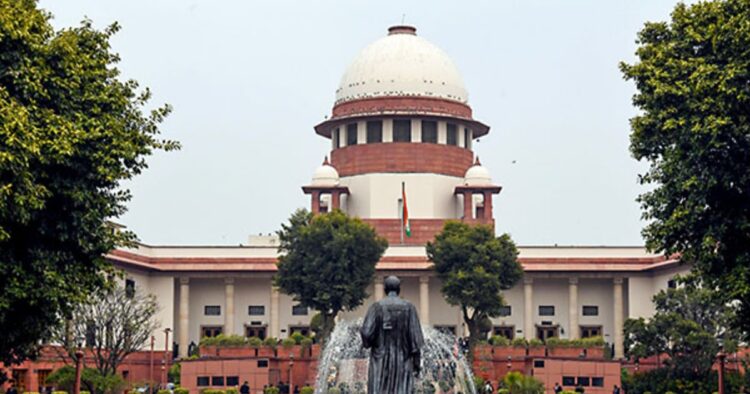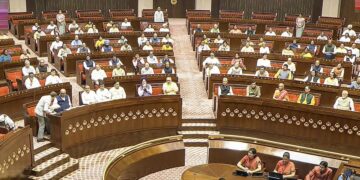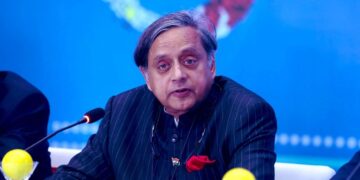The Supreme Court of India has decisively upheld the rights of divorced Muslim women to claim maintenance under Section 125 of the Criminal Procedure Code (CrPC). This ruling reaffirms the principle of equality before the law, transcending religious barriers to ensure that all women, regardless of their marital status or faith, are entitled to financial support after divorce.
The Supreme Court’s judgment, delivered on July 10, 2024, in the case of Mohammed Abdul Samad vs. the State of Telangana, comes after years of legal battles and societal debates surrounding the applicability of secular laws to religious communities. The crux of the matter lies in Section 125 of the CrPC, a provision designed to provide maintenance to wives, children, and parents who are unable to support themselves financially.
Historically, debates over personal laws versus common civil codes have underscored the tension between religious autonomy and the state’s duty to ensure equality and justice for all citizens. In the case of Muslim women, the issue of maintenance after divorce has been particularly contentious due to varying interpretations of Islamic law and its intersection with civil statutes.
The Supreme Court’s decision marks a significant departure from previous interpretations that limited the scope of maintenance provisions for Muslim divorcees to the iddat period, a customary period of waiting after divorce. By extending the applicability of Section 125 CrPC to all married women, including Muslim women, the court has unequivocally affirmed that personal laws cannot override fundamental rights guaranteed by the Constitution.
However, the All India Muslim Personal Law Board (AIMPLB) has chosen to contest this ruling, viewing it as an encroachment on religious autonomy and principles enshrined in Sharia law. The board’s opposition, expressed through statements and resolutions, argues that the Supreme Court’s decision contradicts Islamic teachings on marriage and divorce, which emphasize reconciliation over dissolution.
In a resolution issued on July 14, the AIMPLB emphasized the sanctity of marriage in Islam and expressed concerns that the court’s ruling would undermine efforts to preserve marital bonds and family cohesion. They argue that while divorce is permissible as a last resort, the emphasis should be on reconciliation and maintaining familial ties, rather than legal obligations post-divorce.
Critics of the AIMPLB’s stance argue that it perpetuates gender inequality and denies women their rightful entitlements under civil law. By advocating for a rollback of the Supreme Court’s decision, the AIMPLB is perceived as prioritizing religious orthodoxy over gender justice and equal rights for women. This opposition highlights a broader reluctance within some religious communities to reconcile traditional practices with modern legal frameworks that prioritize individual rights and freedoms.
The Supreme Court’s ruling, delivered by a bench headed by Justice B.V. Nagarathna, underscores the judiciary’s role in safeguarding constitutional principles of equality and justice. Justice Nagarathna, in her judgment, emphasized that maintenance is not a matter of charity but a right owed to spouses, particularly homemakers who often sacrifice career opportunities to support their families.
Moreover, the court’s decision aligns with international human rights standards that emphasize gender equality and non-discrimination. By extending the protection of Section 125 CrPC universally, the Supreme Court has brought Indian law closer to global norms that prioritize women’s economic empowerment and independence.
In contrast, the AIMPLB’s opposition reflects broader concerns within religious communities about the erosion of cultural and religious autonomy in the face of secular legal frameworks. They argue that while the Constitution guarantees freedom of religion, including the right to practice and propagate religious beliefs, it should also accommodate specific religious practices and customs that govern personal matters like marriage and divorce.
However, proponents of the Supreme Court’s decision argue that constitutional rights cannot be subject to selective application based on religious beliefs. They contend that while religious freedom is essential, it must coexist harmoniously with constitutional guarantees of equality and justice for all citizens, irrespective of their faith or background.
The debate surrounding the Supreme Court’s ruling on maintenance for divorced Muslim women also intersects with broader discussions on the Uniform Civil Code (UCC), a contentious proposal aimed at harmonizing personal laws across religious communities. The AIMPLB’s opposition to the UCC further underscores their resistance to uniformity in civil laws, citing concerns over cultural diversity and the preservation of religious autonomy.
While the Supreme Court’s decision represents a significant milestone in advancing gender justice and equality, the debate surrounding its implications continues to provoke strong reactions from various quarters. The AIMPLB’s opposition reflects deep-seated concerns within religious communities about the potential impact of secular laws on religious practices and traditions.
Ultimately, the challenge lies in balancing the constitutional imperative of equality with respect for religious diversity and autonomy. As India navigates these complex issues, it is imperative to uphold the principles of justice, fairness, and inclusivity for all citizens, ensuring that no one is denied their rights under the guise of religious freedom or tradition.
The Supreme Court’s verdict stands as a testament to the enduring quest for gender equality and justice in the country’s legal landscape, setting a precedent for future reforms and debates on personal laws and civil rights.
















Comments